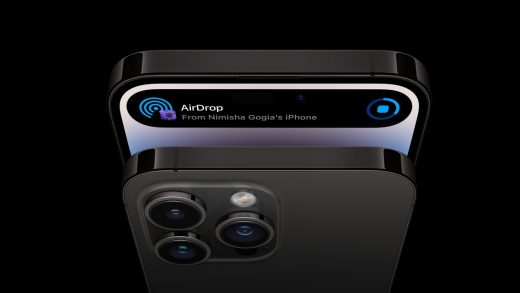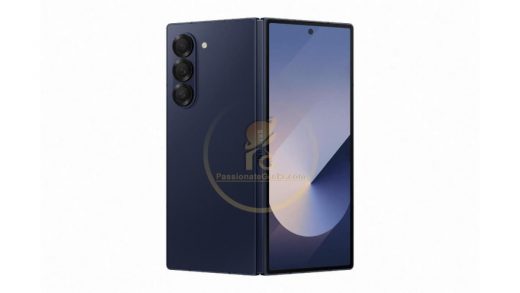:format(webp)/https://www.thestar.com/content/dam/thestar/entertainment/music/2023/03/24/lana-del-rey-finds-solace-in-family-on-her-deeply-personal-ninth-album/lana1.jpg)
Lana Del Rey has always seemed like a musical protégé and spiritual successor to Leonard Cohen. Though they never crossed paths, Del Rey — like the late Montreal bard — presents herself as an impassioned but world-weary poet; sexually liberated but perpetually heartbroken; cynical but always searching; a prolific songwriter whose lyrics blossom naturally into music.
“I never got to tell you how much you changed me,” Del Rey wrote on Instagram when Cohen died in 2016. “Other than Bob and Joan you were the only person I ever really felt spoke my language.”
Del Rey makes that connection explicit on “Kintsugi,” a delicate piano ballad that marks the midway point of “Did You Know That There’s a Tunnel Under Ocean Blvd,” the 37-year-old’s remarkable ninth studio album, which arrived Friday.
In the song’s chorus, Del Rey moulds one of Cohen’s most famous lyrics into sultry new shapes. “I don’t trust myself with my heart, but I’ve had to let it break a little more / ’Cause they say that’s what it’s for, that’s how the light shines in,” she sings. “That’s how the light gets in.”
Named after the Japanese practice of repairing broken pottery using liquid gold, “Kintsugi” feels like a guiding metaphor for “Ocean Blvd”: a sprawling, 78-minute album that drifts between unfiltered streams of consciousness and deeply considered ruminations on family, death, love and memory.
As she explained in a recent Rolling Stone interview, it represents “the idea of falling apart and rebuilding one’s life back up even more beautifully,”
Born Elizabeth Grant in New York City, the singer-songwriter who performs as Lana Del Rey emerged in the early 2010s as an enigmatic figure — her viral homemade videos for early singles like “Video Games” and “Blue Jeans” combined cinematic pop music with imagery tied to vintage Americana.
Over the next decade, Del Rey managed to maintain a sense of mystery, even as her popularity exploded with a string of albums that dabbled in dream pop, psychedelia and hip hop, culminating in 2017’s “Lust for Life,” an ambitious stab at “trap-pop” that was commercially successful but ultimately fell flat.
In 2019, Del Rey switched course, teaming up with producer and songwriter Jack Antonoff to record “Norman F–king Rockwell!” Released in the shadow of raging California wildfires and collapsing political systems, the critically acclaimed masterpiece reimagined the lush sounds of ’70s-era soft rock and the dense storytelling of Laurel Canyon folk music — a style she’d expand upon with a stellar pair of 2021 albums, “Chemtrails Over the Country Club” and “Blue Banisters.”
Del Rey mostly stays the course on “Ocean Blvd,” which — following a brief choral prelude — begins with a trio of lavish, downtempo ballads.
On opener “The Grants,” which draws inspiration from John Denver’s 1972 folk classic “Rocky Mountain High,” Del Rey vows to carry the memories of her loved ones through life and beyond. “My sister’s first-born child, I’m gonna take that too with me / My grandmother’s last smile, I’m gonna take that too with me,” she sings in an aching falsetto.
The album’s title track, which refers to a hidden tunnel in Long Beach with “mosaic ceilings, painted tiles,” pays tribute to Harry Nilsson’s 1974 track “Don’t Forget Me,” as Del Rey grapples with the prospect of her own oblivion and eventual disappearance from memory. “F–k me to death, love me until I love myself,” she croons, begging her lover to drown out her insecurity.
It’s heavy stuff; sentimental, though never saccharine, thanks in part to Del Rey’s pithy one-liners: “I’m a different kind of woman. If you want some basic bitch go to the Beverly Centre and find her,” she sings with a swaggering bravado on “Sweet.”
But throughout the album, Del Rey returns again and again to familial love.
On “Kintsugi,” which Del Rey wrote during a family visit to her beloved uncle’s hospice, the lyrics feel diaristic, as the narrator is overwhelmed by the imminence of loss: “Everyone was there, they were standing, laughing, and I’m on the side with the tears streasheming down,” she sings. “Something about the clutch of the wrist — he thought mine was his to pop into his mouth. We’ve only got hours.”
The words — a scattered and anxious — continue to pour out of Del Rey on “Fingertips.” She scolds her brother for smoking one moment, and ponders motherhood while thinking of her sister’s children in the next. “Will I have one of mine?” she wonders. “Can I handle it?”
“Ocean Blvd” was co-produced by Del Rey and a solid rotation of collaborators, including Antonoff, Drew Erickson, Zach Dawes, Benji and Del Rey’s ex-boyfriend Mike Hermosa. And though the 16-track behemoth is certainly stamped with Antonoff’s now-ubiquitous signature sound — the heavy piano chords, softly strummed acoustic guitars, pattering percussion, theatrical strings — a series of well-placed production flourishes and guest features prevent it from ever sinking beneath its own weight.
Take for example, “A&W” a seven-minute epic that begins with a frantic swirl of piano arpeggios, before fracturing into a druggy haze of woozy bass and icy trap drums. “Jimmy, Jimmy cocoa puff, Jimmy, Jimmy, ride,” Del Rey raps, interpolating Little Anthony & the Imperials (or possibly Nelly). “Peppers” is an uptempo jam that features a bouncy chorus courtesy of underground Canadian rapper Tommy Genesis — another left turn that pulls “Ocean Blvd” away from the pastiche, pegging it to the current moment.
Jon Batiste, the jazz and R&B musician who took home the Grammy for Album of the Year in 2022, provides the moody “Candy Necklace” and an accompanying interlude with textured piano playing and plaintive background vocals. Indie rock lothario Father John Misty also appears for a lusty duet on “Let the light In,” one of five songs Del Rey co-wrote with ex-boyfriend Hermosa.
Less effective tracks include “Margaret,” a clunky love song about Antonoff and his fiancée, and “Taco Truck x VB,” a disorienting and bloated version of Del Rey’s own 2019 cut “Venice Bitch” (an interesting experiment that stans will surely appreciate, but probably would have worked better as a bonus track). An interlude featuring a rousing sermon from celebrity pastor Judah Smith supplies some intriguing thematic texture, but its four-and-a-half-minute length makes it a likely skip.
Indeed, a wandering, “anything goes” feeling pervades “Ocean Blvd” at times, and may turn off those intimidated by its overstuffed run time. But the patient listener can only marvel at the densely layered smorgasbord of words, images and hyperspecific references being served up by the once enigmatic artist, seemingly operating at the peak of her craft.
“It’s funny, this album felt totally effortless,” Del Rey told Billie Eilish in Interview magazine. “When I did ‘Norman F–king Rockwell!’ it was about world-building, whereas this was straight vibing.
“The majority of it is my innermost thoughts,” she added.
Del Rey’s latest opus never quite reaches the soaring heights of “Norman F–king Rockwell!” a Trump-era dispatch from the precipice of the apocalypse. Released amid the pandemic rubble, “Ocean Blvd” instead feels grounded and reborn, like a familiar piece of pottery streaked with liquid gold.
JOIN THE CONVERSATION
does not endorse these opinions.
:format(webp)/https://www.thestar.com/content/dam/thestar/entertainment/music/2023/03/24/lana-del-rey-finds-solace-in-family-on-her-deeply-personal-ninth-album/lana_cover_photo.png)

